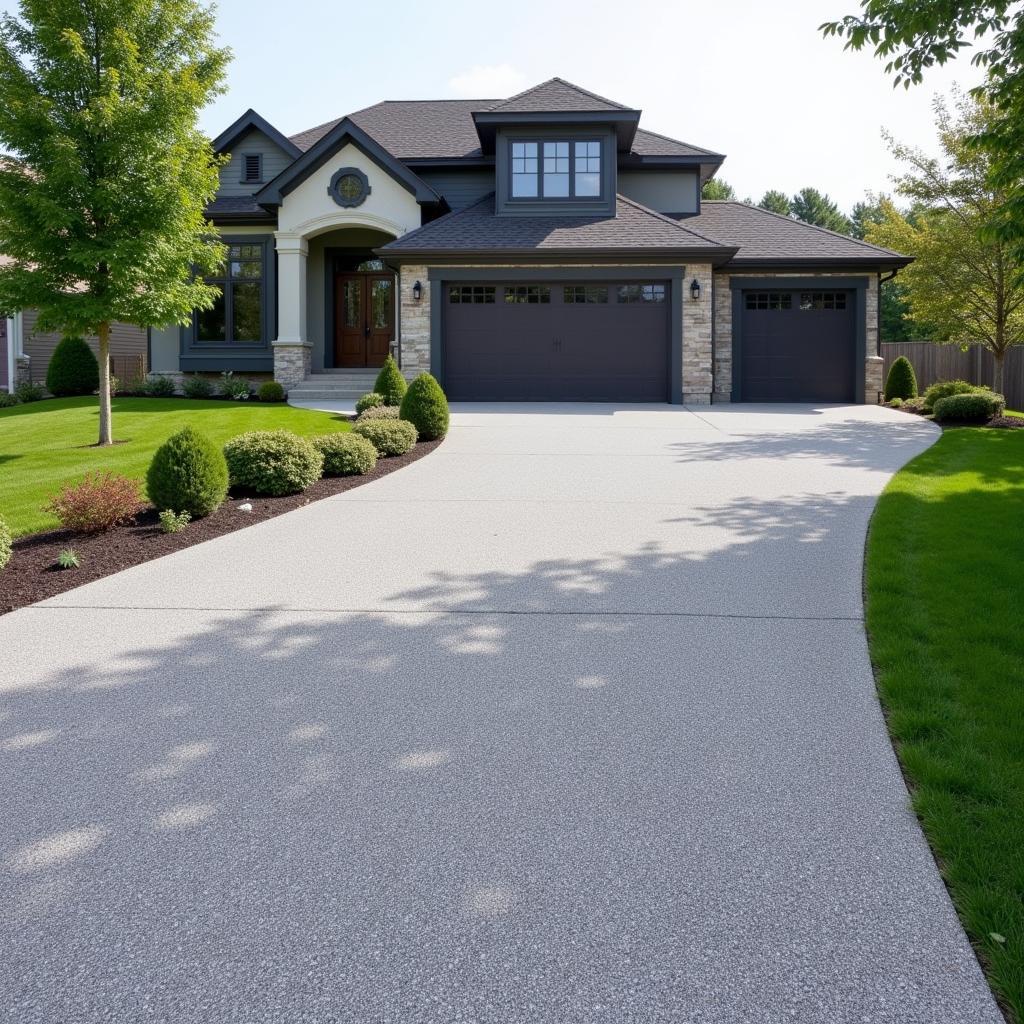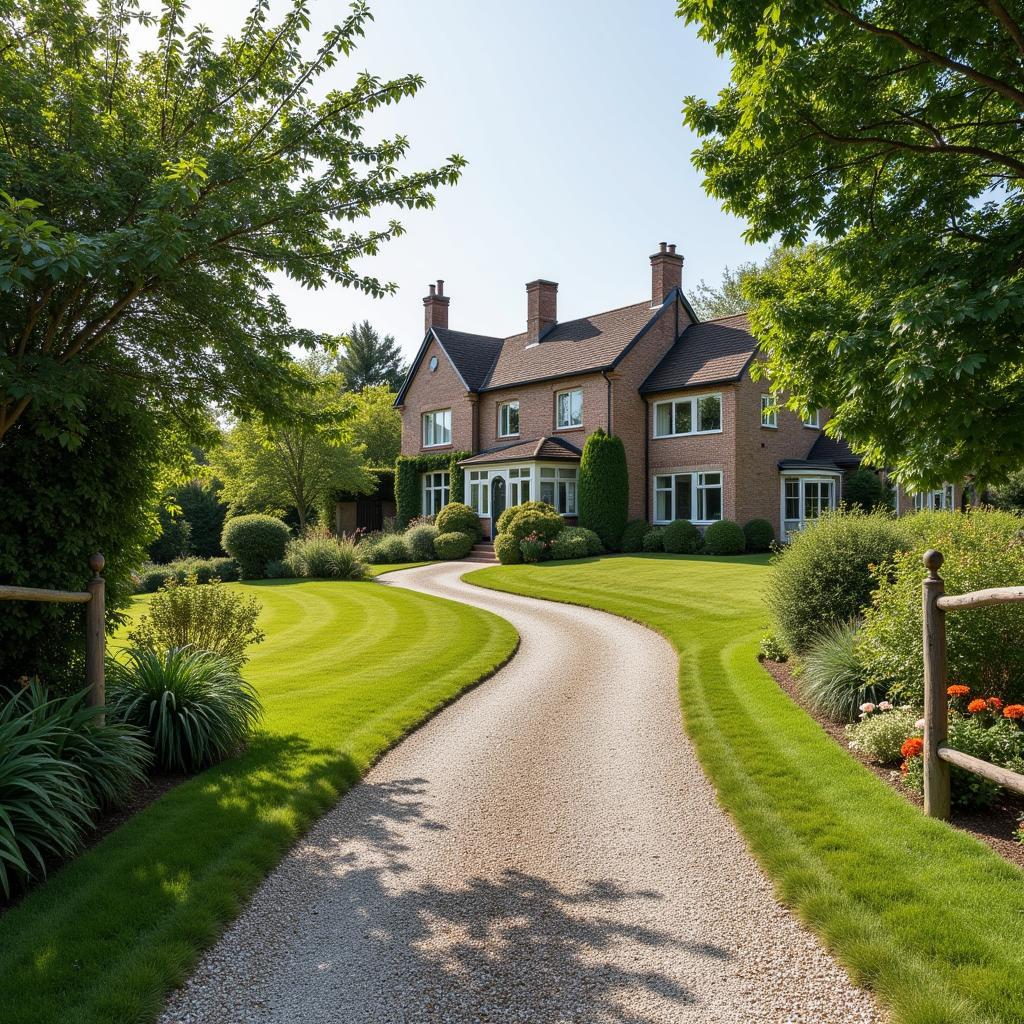When it comes to choosing a driveway surface, homeowners are often faced with a myriad of options, each with its own set of pros and cons. Two popular choices that consistently top the list are tarmac and gravel. Both materials offer durability and visual appeal, but understanding their distinct characteristics is crucial for making an informed decision that aligns with your needs, budget, and aesthetic preferences. This comprehensive guide delves into the tarmac vs gravel debate, exploring their individual strengths, limitations, and ideal use cases to help you determine the perfect fit for your driveway.
Tarmac: Durability and Sleek Aesthetics
Tarmac, also known as asphalt, is a composite material composed of aggregates like crushed stone, sand, and gravel, bound together by bitumen, a viscous petroleum-based binder. Renowned for its robustness and smooth finish, tarmac offers a plethora of advantages as a driveway surface:
- Exceptional Durability: Tarmac driveways are engineered to withstand heavy traffic loads, making them ideal for households with multiple vehicles or frequent visitors. The robust composition of tarmac resists cracking, rutting, and other forms of damage, ensuring longevity and minimal maintenance requirements.
- Smooth and Even Surface: The inherent smoothness of tarmac provides a seamless driving experience, minimizing vibrations and noise. This characteristic is particularly beneficial for families with young children or elderly members, enhancing safety and comfort.
- Visually Appealing: Tarmac offers a clean and modern aesthetic that complements a wide range of architectural styles. Its sleek black finish lends a touch of sophistication and visual appeal to any property.
 Modern Tarmac Driveway
Modern Tarmac Driveway
Gravel: Cost-Effective and Permeable Option
Gravel driveways, on the other hand, utilize loose aggregates like crushed stone, gravel, or pebbles to create a durable and permeable surface. This natural-looking option presents a distinct set of advantages:
- Cost-Effectiveness: Gravel is generally more affordable than tarmac, both in terms of material and installation costs. This makes it an attractive choice for budget-conscious homeowners seeking a durable yet economical driveway solution.
- Permeability: Unlike tarmac, gravel allows water to permeate through, reducing runoff and promoting natural drainage. This feature is particularly advantageous in areas prone to heavy rainfall, as it minimizes the risk of flooding and water damage.
- Versatility in Design: Gravel offers a high degree of design flexibility, with a wide array of colors, sizes, and textures available. This allows homeowners to personalize their driveways and complement their landscape design.
 Rustic Gravel Driveway
Rustic Gravel Driveway
Tarmac vs Gravel: Key Considerations
While both tarmac and gravel present compelling advantages, understanding their differences is crucial for making the right choice. Here are some key considerations to keep in mind:
- Budget: Gravel generally offers a more budget-friendly option compared to tarmac, particularly for larger driveways.
- Maintenance: Tarmac driveways require minimal maintenance, typically limited to occasional cleaning and seal coating. Gravel driveways, while relatively low-maintenance, may require occasional raking or topping up to maintain an even surface.
- Drainage: Gravel’s permeability makes it an excellent choice for areas prone to heavy rainfall. Tarmac, being impermeable, may require additional drainage solutions to prevent water accumulation.
- Aesthetics: Tarmac offers a sleek and modern aesthetic, while gravel provides a more natural and rustic appearance.
Conclusion: Choosing the Ideal Driveway Surface
The choice between tarmac and gravel ultimately boils down to individual needs, preferences, and site-specific factors. Tarmac, with its durability and sleek finish, is an excellent choice for homeowners seeking a low-maintenance and visually appealing driveway.
Gravel, on the other hand, offers a cost-effective, permeable, and customizable solution that blends seamlessly with natural landscapes. By carefully considering the factors discussed above and consulting with a reputable driveway specialist, you can confidently select the perfect surface to enhance the functionality, aesthetics, and value of your property.
FAQs
1. How long does a tarmac driveway last?
A well-maintained tarmac driveway can last for 15-20 years or even longer.
2. Does gravel require a lot of maintenance?
Gravel driveways require minimal maintenance, including occasional raking, topping up, and weed control.
3. Is tarmac slippery when wet?
While tarmac can become slippery when wet, its textured surface provides better grip compared to other paving materials.
4. Can I install a gravel driveway myself?
While possible, it’s recommended to hire a professional for gravel driveway installation to ensure proper grading and drainage.
5. Which is better for sloped driveways: tarmac or gravel?
Tarmac is generally a better choice for sloped driveways as it provides a more stable and slip-resistant surface.
Need further assistance choosing the right driveway surface for your home?
Contact us!
Phone: 0902476650
Email: [email protected]
Address: 139 Đ. Võ Văn Kiệt, Hoà Long, Bà Rịa, Bà Rịa – Vũng Tàu, Việt Nam.
Our dedicated customer support team is available 24/7 to answer your questions and guide you towards the ideal solution.





